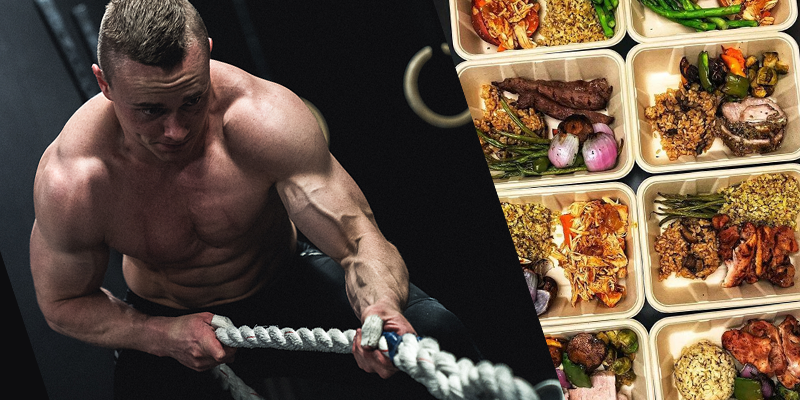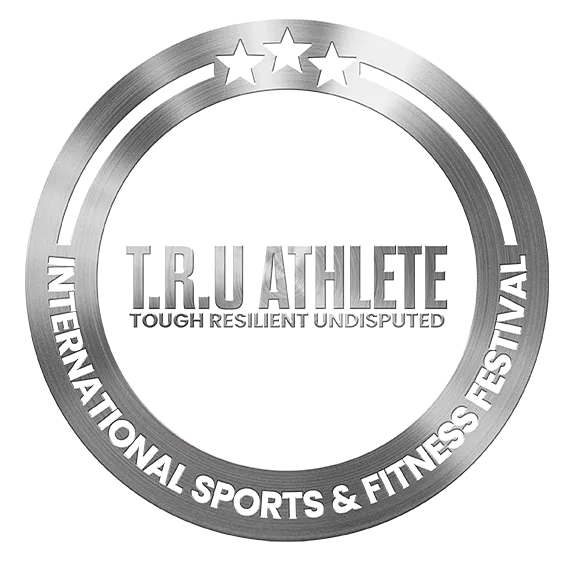As a strongman athlete, your nutrition is an essential component of your training regimen. Strongman competitions require athletes to perform feats of strength and endurance, such as lifting heavy objects, pulling trucks, and carrying weight over long distances. These activities require a significant amount of energy, which can only be obtained from a healthy and balanced diet. In this blog, we will explore the importance of nutrition in strongman training, including what to eat and when, with facts and data to support our claims.
Understanding Nutrition for Strongman Training
- Nutrition is essential for strongman training. Eating the right macronutrients, such as carbs and protein, will help to provide the body with the nutrients it needs to support muscle growth, recovery, and performance.
- Athletes should focus on carbohydrates during contest prep to help increase muscle glycogen stores and improve performance in events lasting longer than 90 minutes. This type of fuel helps to provide glucose to the muscles, which can be used as a source of energy when glycogen levels are low. In addition, carbs also provide creatine phosphate, a substance that helps the body metabolize fat for energy.
- As for protein intake, strongmen should aim for 1.5 grams per pound of bodyweight. This amount is necessary for amino acids to be absorbed and used by the body during contest preparation. The protein intake should be tailored to allow for adequate leucine intake, which will help to stimulate mTOR activity and protein synthesis.
- Strongmen must fuel their bodies like a machine, with the correct fuel for maximum performance. This means ingesting progressive overloads of nutrients throughout contest prep and training to ensure that their bodies are able to adapt and respond optimally to training demands.
- Fitness and conditioning exercises are also important for strongman success. They help athletes gain muscle mass and strength so they can perform at their best during competitions.

#Caloric Requirements for Strongman Training
One of the critical factors in strongman training is caloric intake. As a strength athlete, you burn a significant number of calories during training, which means you need to consume a large number of calories to fuel your performance. According to the American College of Sports Medicine, strength athletes require a caloric intake of approximately 40-50 calories per kilogram of body weight per day. For a 220-pound athlete, this translates to roughly 3,600 to 4,500 calories per day.
#The Importance of Macronutrients
When it comes to strongman nutrition, macronutrients are essential. Macronutrients include carbohydrates, protein, and fat, and each plays a vital role in fueling your performance.
Carbohydrates: Carbohydrates are the primary source of energy for the body. During intense exercise, the body relies on stored glycogen for fuel, which is primarily derived from carbohydrates. The American Dietetic Association recommends that strength athletes consume 6-10 grams of carbohydrates per kilogram of body weight per day.
Protein: Protein is essential for building and repairing muscle tissue. Strength athletes require a higher intake of protein to support muscle growth and recovery. The International Society of Sports Nutrition recommends that strength athletes consume 1.4-2 grams of protein per kilogram of body weight per day.
Fat: Fat is an essential macronutrient for energy production and hormone regulation. It also plays a critical role in the absorption of vitamins and minerals. The American College of Sports Medicine recommends that strength athletes consume 20-35% of their daily calories from fat.
#Timing of Nutrition
The timing of nutrition is also crucial in strongman training. Eating the right foods at the right time can help you fuel your performance, enhance your recovery, and improve your overall health.
Pre-Workout Nutrition: Consuming a pre-workout meal that is rich in carbohydrates can help you maximize your performance. According to research published in the Journal of the International Society of Sports Nutrition, consuming carbohydrates before exercise can improve endurance and delay fatigue.
During-Workout Nutrition: During prolonged exercise, consuming carbohydrates can help maintain blood sugar levels and delay fatigue. Consuming protein during exercise may also help prevent muscle breakdown.
Post-Workout Nutrition: Consuming a post-workout meal that is rich in carbohydrates and protein can help improve recovery and promote muscle growth. According to research published in the Journal of the American College of Nutrition, consuming protein after exercise can enhance muscle protein synthesis and improve recovery.
#Hydration
Hydration is also essential in strongman training. Dehydration can impair performance, increase the risk of injury, and delay recovery. According to the American Council on Exercise, athletes should consume 17-20 ounces of water 2-3 hours before exercise and 7-10 ounces every 10-20 minutes during exercise.
Are there any supplements that can help me reach my strongman goals faster?
Yes, there are supplements that can help you reach your strongman goals faster. Here are some of our recommendations:
- Caffeine: This supplement is known for its ability to reduce pain and perceived exertion during exercise, as well as to improve calcium handling, which could potentially enhance power output.
- Creatine Supplements: These supplements can help increase strength and size by improving muscle cell hydration and increasing blood flow to muscles.
- Mass Gainers: Mass gainers are packed with protein and carbohydrates and can help build lean muscle mass when taken regularly.
- Protein Powders: Protein powders can aid muscle growth and help with recovery in between training sessions.
- Pre-Workout Meals: Eating a pre-workout meal with both carbohydrates and protein is recommended for optimal performance. The carbs will give you the energy you need while the protein aids muscle growth and recovery.
How can you ensure that I am getting adequate nutrition while on a strongman training program?
If you are following a strongman training program, nutrition is a key ingredient in maximizing your performance.
- To ensure adequate nutrition, it’s important to focus on consuming a balanced diet of carbohydrates, proteins and fats. Eating complex carbohydrates like oats and sweet potatoes, lean sources of protein such as chicken and fish, and healthy fats like avocados and almonds can help fuel the body for endurance and strength training.
- In addition, supplementing with branched chain amino acids (leucine) has been shown to help activate mTOR and increase protein synthesis in the body, which is essential for muscle recovery. Eating food sources that are rich in creatine such as fish or red meat can also help provide an energy boost during intense workouts.
- Ultimately, understanding the “why’s” and “why not’s” of nutrition is essential in order to make healthy changes to your lifestyle. As a strongman athlete, you should focus on optimizing your diet and hydration in order to maximize the effectiveness of your training program.
Let’s Sum Up
When it comes to nutrition and strongman athletes, some of the most common mistakes made can include: not consuming enough energy to meet the demands of training, not ingesting sufficient amino acids to maximally activate and protein synthesis, over-consuming dietary supplements that do not have sound scientific backing, not tracking physical testing markers and game performances to evaluate the effectiveness of a program, and not adhering to a well-designed diet that meets energy intake needs and includes the correct macronutrient breakdown.
All of these nutrition blunders can hinder strongman performance in the long run. So it’s important for strongman athletes to pay close attention to their nutrition plan, ensuring that it’s correctly tailored to their specific body composition needs and goals.



